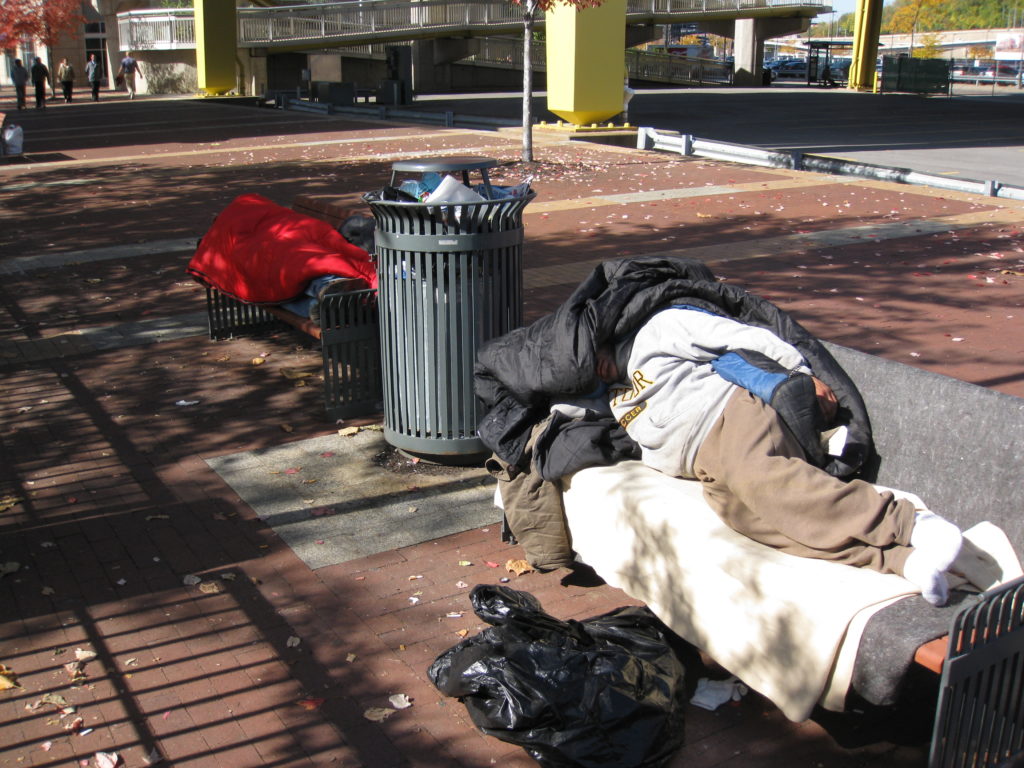The group of students and young staffers from Gettysburg College checked in at the National Coalition for the Homeless halfway through their 48-hour Homeless Challenge dirty, exhausted, but already wiser.
For 24 hours, they had been living by their wits, and the kindness of strangers, panhandling, catching a little warmth in libraries and Metro stations.
Experienced homeless people could tell they were new to the streets and guided them to the soup lines. But with their torn clothes and bags, they got suspicious looks when they ventured into department stores to use the restrooms. In between, they walked for miles.
At night, they laid down the cardboard they had gathered while Dumpster diving, spread out their bedrolls and slept fitfully on the pavement outside McPherson Square Metro station.
“I am so exhausted,” admitted student Laura Koening “I can’t wait to go to sleep again. But I’ll be sleeping on concrete.”
They knew they were only homeless for another 24 hours. But they had learned some important things about the vulnerability that goes with having no place to really be.
Michael Stoops, director of community organizing for the NCH sees this among the participants of every one of the dozen Homeless Challenge groups he organizes each year. A weekend “is not enough to change someone’s life, “Stoops said. “But it makes them appreciate what they have and what it’s like to be homeless in our society.”
Stoops himself was one of several homeless activists including Mitch Snyder of the Community for Creative Non- Violence who lived on the streets for six months during the winter of 1986- 87. They successfully lobbied Congress for the passage of the McKinney Vento Homeless Assistance Act, which provides federal money for homeless services.
After that, Stoops got the Homeless Challenge program started. Since 1988, over 2,000 people have taken part. Participants include students from over 200 different schools, Capitol Hill staffers and public officials, candidates for public office and social workers. Many make the challenge part of a weeklong immersion learning experience that includes volunteering at local homeless programs, listening to a panel of homeless men and women talk about their lives at an NCH Faces of Homelessness Speakers’ Bureau presentation and lobbying for homelessness legislation in Congress.
Stoops believes the Homeless Challenge program has helped many participants get more involved in homelessness and social justice issues. He believes first-hand experience is a great teacher.
“It’s important to become an expert at whatever you are passionate about.”
Turning to his latest charges he coached them on. “Has anybody gone to Starbucks to ask for free coffee?” asked Stoops,
“Has anyone asked for a job yet?”
“I definitely want to get a job,” said student Ankit Aryal. The student knew his patched jacket and matted hair would work against him in the job market. But he would give it a try. Then Aryal and the others resolutely shouldered their bags and bedrolls and headed back out into the gray afternoon, to learn more about homelessness.








